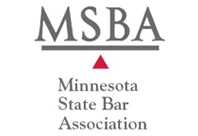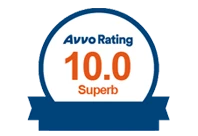 42.8 million Americans carry the weight of student loan debt as a part of their monthly budget. This equates to about 13% of the US population with federal student loan debt.
42.8 million Americans carry the weight of student loan debt as a part of their monthly budget. This equates to about 13% of the US population with federal student loan debt.
A whopping 9.7 million student loan borrowers have between $20,000 and $40,000 in debt.
After graduation, many find it challenging to keep up with payments needed to repay the same loans that got them through higher education. Many find that the burden of student loan payments is too much, and they simply can’t make the payments based on their income.
Student loan bankruptcy is the only viable option to get out of the burden of this enormous debt.
Read on to look at student loan discharge and see how a bankruptcy filing could get you out of having to repay those loans.
Impact of Being Behind on Student Loan Debt
Once you complete college, you must start paying back your federal student loans. Typically, your payments get based on income.
But in real life, sometimes those payments are more than what’s doable. When you fall behind on student loan debt, it can impact your credit score and your ability to finance other things affordably, like buying a car or a house.
If you have federal loans, the government can withhold your tax returns and apply that money toward your student loan debt, which grows because of interest.
Private loan companies can be even more aggressive in seeking to garnish wages if debts aren’t paid.
Bankruptcy Filing, Which Option?
Most people know there are a few different types of bankruptcy filings, each with other implications for the filer. You must choose between filing either Chapter 7 Bankruptcy or Chapter 13 to file.
You’ll be required to complete extensive paperwork that provides the courts with information about the following:
- Your assets
- Income
- Debts
- Expenses
The challenge, always, in discharging student loan debt through bankruptcy is proving hardship. Let’s take a closer look at the two types of bankruptcy.
Chapter 7 and Student Loans
In Chapter 7 bankruptcy, you file and get assigned a trustee. The trustee is given the task of selling off your assets that are not protected from creditors..
Usually, a person’s house, car, and household goods are exempt from creditors and cannot be taken. If the trustee sells assets that are not exempt, they use the funds to attempt to pay off as many of your debts as possible.
To qualify for Chapter 7 bankruptcy, you can’t have filed Chapter 7 in the last eight years. You must also fall below your state’s median monthly income or pass the required means test.
To discharge student loans as part of this process, you must show hardship in that continuing to pay it would be impossible based on your current situation and finances.
Chapter 13 and Student Loans
Chapter 13 bankruptcy works a little differently. Instead of selling non-exempt assets, in Chapter 13 bankruptcy, you have a reorganization of your debts.
You work with your bankruptcy attorney and submit a repayment plan to the courts. This type of bankruptcy allows the filer to get caught up on debts, including mortgage and car. The Chapter 13 payment plan does not necessarily pay the debt in full. Debt that is not paid in full may be discharged at the end of the payment plan.
When Student Loans Are Dischargeable and When They’re Not
While recently proposed changes to rules related to discharging student loans may change things, until recently, it mattered a lot where you got your student loans from.
If you held a private loan, one that was issued by a for-profit entity, you could attempt to get the loan discharged through bankruptcy.
Federal loans issued by the government or a non-profit university or guarantor, the loans were often more difficult to discharge in bankruptcy.
Of course, recent policy changes could completely change this rule for student loan holders. The Biden administration proposed changes that should make it easier for bankruptcy courts to discharge student loans, even federal loans or loans from non-profit entities.
Discharging Federal Loans
It used to be that if you went to a bankruptcy attorney for bankruptcy and to get free from student loans, they would tell you it was very difficult or even impossible.
When you meet with an attorney to discuss bankruptcy and your student loans, if the attorney tells you that the courts never discharge student loans, they are not the right attorney for you.
While it’s possible to discharge federal loans now, it can still be challenging.
You’ll need to be prepared for an arduous process where you must show how continuing to repay the loans creates hardship for you and your family.
In addition to filing the bankruptcy, you must also file for an adversary proceeding.
Getting a Loan Discharged: Adversary Proceeding
Your finances will be sorted and examined closely when you go through bankruptcy. Interestingly, this is different from where student loans are considered.
You must also file for the adversary proceeding to determine the status of your student loans. The courts define an adversary proceeding as a hearing to determine the dischargeability of a debt.
The adversary proceeding is considered a separate lawsuit from the filing you do for bankruptcy. The adversary proceeding includes a complaint which should give information like:
- Bankruptcy case number
- Reasons for seeking to discharge student loans in bankruptcy
- Circumstances of undue hardship
The adversary hearing is required since the discharge rules are much more challenging for student loans than other types of debt. The legal requirements for this process are listed in section 523(a)(8) of the US bankruptcy code.
Adversary Proceeding: Chapter 7
If you plan to file for Chapter 7 bankruptcy, you can file for the adversary proceeding after you receive your discharge.
You might already be going through Chapter 7 or even have your case recently closed; there is still time to file for an adversary proceeding to address student loan debt.
This might be especially important when considering possible changes to student loan debt discharging.
Adversary Proceeding: Chapter 13
Chapter 13 adversary proceedings are a little trickier. First, when you can apply for the proceeding depends on where you live and the specific state rules.
Once you apply and go through the adversary proceeding, even if you’re granted a discharge, it will go into effect once you follow through with your Chapter 13 reorganization plan.
Before the discharge can occur, you must show that you have followed the approved reorganization plan for your Chapter 13 bankruptcy.
Hardship Grounds
Proving hardship is the key to getting a discharge for a student loan. How do the courts decide if you have a problem?
First, you should know it varies significantly by state and the court you’re in. You’ll need to be well prepared to show the following:
- You couldn’t maintain a minimal standard of living if you have to pay back the student loan
- You’re likely to continue to suffer this hardship throughout the loan
- You’ve made every effort so far to repay the loan before filing for bankruptcy
Three things could happen when the court evaluates your evidence of hardship.
They could agree that student loan debt does create hardship, and there’s little chance of that changing. So, the court discharges the entire debt.
The court could also decide to discharge a portion of your loan and expect you to repay the part they don’t discharge.
The court could also decide they won’t discharge the loan but will change the repayment terms to make it more manageable.
Most courts use the Brunner Test to evaluate hardship. The Brunner Test is based on the court case Marie Brunner v. New York State Higher Education Services Corp. The test helps the courts to assess the applicants:
- Current financial situation
- Foreseeable future situation
- Have made a reasonable faith effort to repay their loans
They might also use the totality of the circumstances test to establish if you’re eligible for hardship. It uses similar measures to the Brunner Test.
What Options Do You Have If the Student Loan Isn’t Discharged?
If a court decides you don’t meet the hardship criteria, you might still have some options. The court may help you work with the lender to devise a different repayment plan.
Be forthright with our loan provider and see if they will work with you to devise a different payment plan that better suits your financial situation.
Handle Your Student Loan Bankruptcy
The laws related to student loan bankruptcy have changed enough that you might be eligible for a discharge. You need an experienced bankruptcy attorney who can help you prove hardship.
If you’re considering bankruptcy or struggling to keep up with your student loans, let’s talk. Contact our Bloomington attorney today so we can help you decide if filing for bankruptcy is the right option for you.








